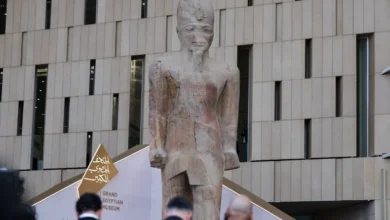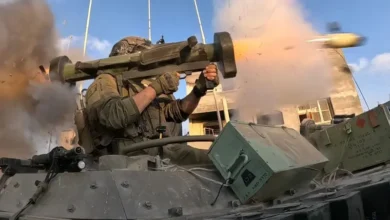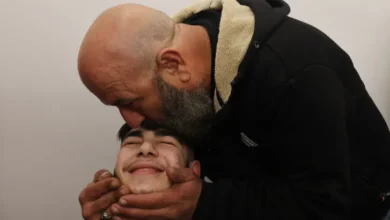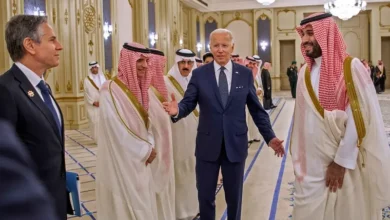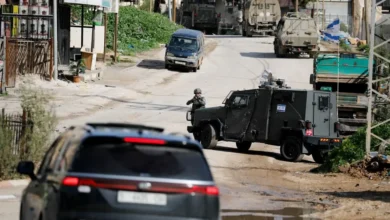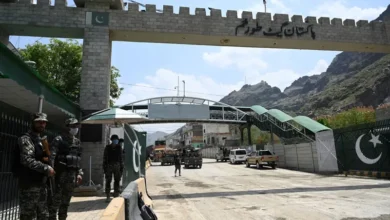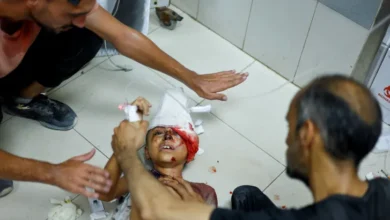Israel’s prime target: What is Palestinian Islamic Jihad?
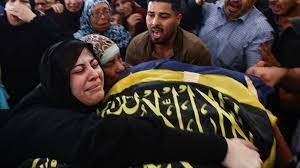
Israel has continued its air attacks on Gaza for a third day in a row, killing at least 27 Palestinians, including five women and five children, as it targeted four leaders of the Palestinian Islamic Jihad movement (PIJ).
Israeli forces killed Ali Ghali, commander of PIJ’s rocket-launch unit, in the latest attack on a building in Gaza’s southern Khan Younis.More than 400 retaliatory rockets have been fired from Gaza towards Israel since Wednesday, with most intercepted by Israeli missile defences.
What is the Palestinian Islamic Jihad?
The PIJ was founded in 1981 by Palestinian students in Egypt with the aim of establishing a Palestinian state in the West Bank, Gaza and other areas illegally occupied by Israel.
While the armed group is sharply critical of the Palestinian Authority and its policies, it does not participate in politics and limits its role to military confrontations with Israel.
Iran supplies Islamic Jihad with training, expertise and money, but most of the group’s weapons are locally produced.
Although its base is Gaza, Islamic Jihad maintains a significant presence in the West Bank town of Jenin and has leadership in Lebanon and Syria, where it maintains close ties with Iranian officials.Who are PIJ’s members?
The current secretary-general of the Palestinian Islamic Jihad is Ziad al-Nakhalah, who was elected to lead the group in 2018. Al-Nakhalah was born in the Gaza Strip in 1953, and became involved with the Islamic Jihad in 1982, playing an essential role in forming the military wing of the movement.Many of the group’s senior members have been killed by Israel.
The group’s founder, Fathi Shaqaqi, a physician from Rafah in the Gaza Strip, was assassinated in Malta in 1995.
Last year, Israeli air raids killed two senior leaders, Khaled Mansour, who died in Israeli air strikes in Rafah in the southern Gaza Strip, and Taysir al-Jabari, commander of the movement’s northern region, and a member of the group’s “military council” – the group’s decision-making body in Gaza.Al-Jabari was in charge of the Islamic Jihad activities in Gaza City and the northern Gaza Strip during the 2021 attack by Israeli forces, when during 11 days of fighting at least 260 people were killed in Gaza and 13 in Israel.
Al-Jabari had replaced Bahaa Abu al-Ata who was also killed by Israeli forces in a 2019 attack. Abu al-Ata’s killing was the first high-profile assassination of an Islamic Jihad figure by Israeli forces since the 2014 war in the Gaza Strip.
The rocket unit commander, Ghali, was a central figure in Islamic Jihad, responsible for targeting and launching explosives, and a veteran of several rounds of fighting with Israel.
The PIJ announced three of its commanders were killed in Israeli air attacks on Monday and pledged to “avenge” their deaths.Israeli army chief spokesman Rear Admiral Daniel Hagari said: “Our principle is clear: whoever harms us – we will strike at them and with great force. Our long arm will reach every terrorist at a time and place of our choosing,” he added.
In the occupied West Bank, Israel has led a continuing campaign of mass arrests and killings in Jenin and other occupied West Bank cities, aimed at fighters affiliated with PIJ’s al-Quds Brigades and other Palestinian armed groups.
The military operations seek to crush a growing shift towards an increasingly organised Palestinian armed resistance in Jenin and Nablus that emerged on the heels of a mass popular outburst of Palestinian resistance in May 2021.
Does international law allow Israel to target the group?
Human rights groups have frequently called out Israel’s violations of international law in Gaza and the occupied West Bank.
The United Nations special rapporteur on the occupied Palestinian territories, Francesca Albanez, said last year during similar attacks that Israeli air raids on the besieged Gaza Strip “not only are illegal but irresponsible”.
